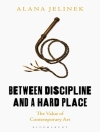A powerful elixir of hope and determination, Zapantera Negra provides a galvanizing presentation of interviews, militant artwork, and original documents from two movements’ struggle for dignity and liberation. When Emory Douglas, former Minister of Culture of the Black Panther Party, accepted an invitation from the art collective EDELO and Rigo 23 to meet with autonomous Indigenous and Zapatista communities in Chiapas, Mexico, they explored the role of revolutionary art in times of distress. Zapantera Negra is the result of their encounter. It unites the bold aesthetics, revolutionary dreams, and dignified declarations of two leading movements that redefine emancipatory politics in the twentieth and twenty-first century.
The artists of the Black Panthers and the Zapatistas were born into a centuries-long struggle against racial capitalism and colonialism, state repression and international war and plunder. Not only did these two movements offer the world an enduring image of freedom and dignified rebellion, they did so with rebellious style, putting culture and aesthetics at the forefront of political life.
Зміст
Preface
Marc James Leger and David Tomas
Introduction
EDELO
ENCOUNTERS
1. Zapantera Negra Dialogues by Emory Douglas, Saul Kak and Mia Eve Rollow
2. Journey to Zapantera Negra by Rigo 23
3. One-Way Ticket: An Interview with Caleb Duarte
PLATFORMS
4. The Black Panther Party for Self-Defense Ten-Point Platform and Program
5. Order From the Black Panther National Central Committee: Outline of Responsibilities by Rank and File
6. Position Paper on Revolutionary Art by Emory Douglas
7. Fourth Declaration of the Lacandon Jungle
8. Sixth Declaration of the Lacandon Jungle
9. The Other Player
REFLECTIONS
Про автора
Emory Douglas is former Revolutionary Artist and Minister of Culture for the Black Panther Party, from February 1967 until its discontinuation in the early 1980s. Douglas’s art and design concepts were always seen on the front and back pages of The Black Panther newspaper, reflecting the politics of the Black Panther Party and the concerns of the community. Joining forces with Black Panther cofounders Bobby Seale and Huey P. Newton, Douglas was foundational in shaping the Party’s visual and cultural power and sustaining one of its most ambitious and successful endeavors.












